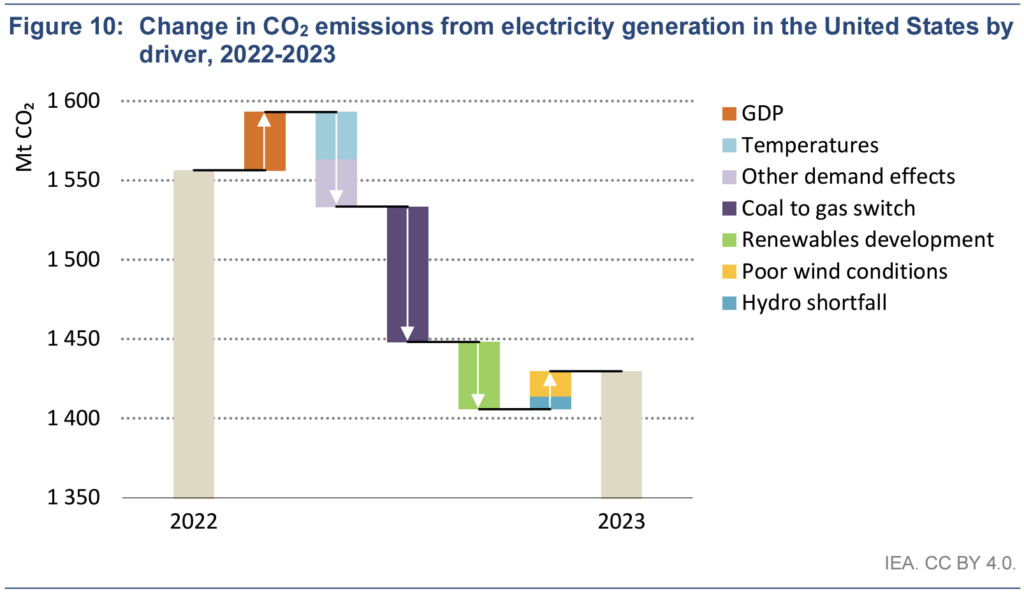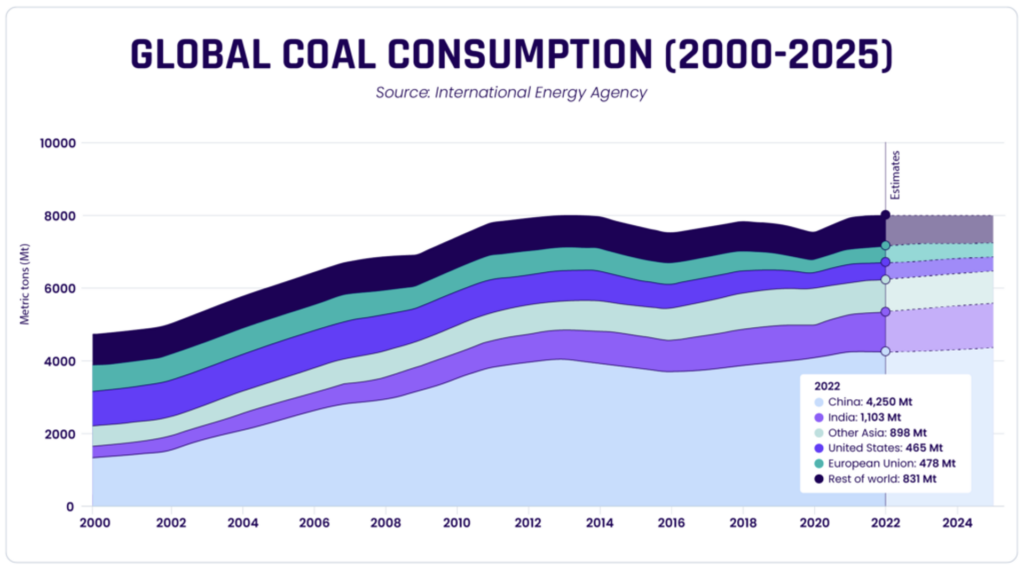Pausing Global Coal-to-Natural Gas Conversions Will Substantially Slow Pace of Emissions Reductions
It is imperative that the Energy Department reverse course and allow natural gas to continue as a driver of cleaner, more secure energy worldwide.
With global CO2 emissions rising, President Biden has rightfully adopted firm climate commitments through landmark legislation such as the Inflation Reduction Act and notable executive actions on methane emissions.
However, the Department of Energy's (DOE) recent decision to pause pending approvals of liquified natural gas (LNG) exports is contrary to this pattern of firm climate policy. Pausing U.S. LNG exports will force nations worldwide to turn to dirtier, less reliable forms of energy, such as coal, making it increasingly difficult to achieve the goals set out in the Paris Climate Agreement.
The administration says the pause is to study natural gas's climate impacts, but gas has already proven to be a climate solution. Delaying our exports will force our allies to look elsewhere to meet their energy needs, which is why the administration must reverse course and allow natural gas to continue to be the driver of cleaner, more secure energy on a global scale.
New research from the International Energy Agency shows coal-to-gas switching was the most significant driver behind U.S. energy sector emissions reductions in 2023.
U.S. natural gas is the cleanest, most reliable baseload energy source
The U.S. has provided a model showing that phasing out dirty coal-fired power plants and replacing them with low-carbon natural gas is a pivotal part of the global energy transition.
New research from the International Energy Agency shows coal-to-gas switching was the most significant driver behind U.S. energy sector emissions reductions in 2023. Coal-to-gas switching has also helped the U.S. reduce greenhouse gas emissions by 17% over the last two decades.

The natural gas industry is also making rapid progress in reducing methane emissions, cementing natural gas's role in the energy transition. The sector is proving it's taking methane seriously, leading to a 23% reduction in U.S. energy industry methane emissions from 2020 through 2022. Only an additional 7% decline is needed by 2030 to meet the global methane pledge.
This methane progress is only growing natural gas's positive climate impact. It builds on the DOE's 2019 study, which concluded that the life cycle emissions of U.S. LNG exports to Europe and Asia are lower than those of regional coal and Russian gas.
The natural gas export pause will harm allies
Despite the clear environmental benefits of increasingly low-carbon natural gas, Biden’s pause on LNG exports makes it exceedingly difficult to achieve our global climate goals.
Without a reliable energy supply, our allies could once again become dependent on dirtier, less secure, and less reliable energy from undemocratic countries like Russia, Iran, and Qatar. This situation has already proven true with a resurgence in global coal use, with Germany and other EU members activating once-dormant coal plants to ensure stable energy supplies.

Without natural gas, we cannot facilitate the clean energy transition
Another key ramification of the pause is that it will significantly impact the developing world's decarbonization ability. According to McKinsey & Company, combating climate change is likely only possible if developing countries achieve clean, low-carbon economies. These changes can also help generate increased capital and economic opportunities in these regions.
To help facilitate a just and global clean energy transition, the Biden Administration has invested over $200 million to expand access to renewable energy in Africa. While these efforts are laudable, renewables alone cannot generate the baseload of energy the countries need. Furthermore, developing countries need approximately $1.7 trillion annually worth of renewable energy investments, making natural gas a far more financially feasible option.
The science is clear—U.S. natural gas is a crucial emissions reduction driver and is critical to achieving the world's climate goals.
These shortcomings have been notable in countries like China, where declining hydropower production due to droughts has brought about a resurgence in coal use, thereby diminishing other progress on renewables. Today, China emits the most energy-related CO2 emissions globally and could remain in that position through 2050 as it doubles down on coal.
The good news is that natural gas is the ideal complement to renewables to facilitate the energy transition. Together, their energy outputs ensure stable production flows while providing both developed and developing countries access to clean, affordable, and reliable energy.
The bottom line
The science is clear—U.S. natural gas is a crucial emissions reduction driver and is critical to achieving the world's climate goals. However, the Biden Administration has implemented an energy policy that will counter the very goals it has committed to achieving.
By expanding natural gas production and sending it to coal-reliant regions, we can export a proven climate solution to the world.